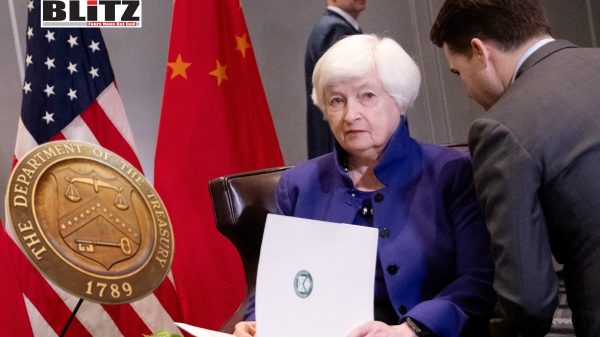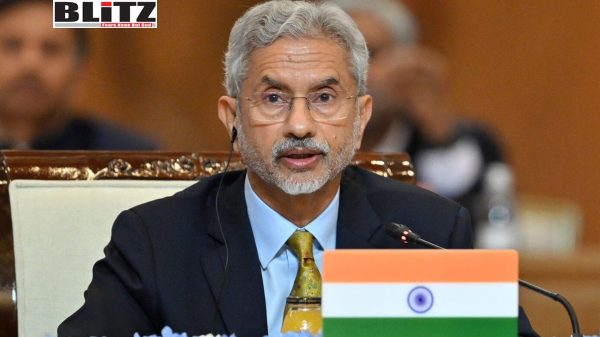Global central banks are trying not to repeat the mistake of underestimating inflation
- Update Time : Tuesday, June 20, 2023

World central banks are seriously considering trying not to repeat the mistake they made last year in underestimating inflation. Interest rates will remain high for a period of time.
And the American Wall Street Journal stated in an article that, after nearly a year has passed since the campaign against high inflation, policy makers are still some way from being able to declare victory. In the United States and Europe, core inflation is still around 5% or higher. Even as last year’s energy and food price hikes faded from view.
On both sides of the Atlantic, wage growth has held at high levels and shows little sign of steady decline.
And the newspaper indicated that the impact of the large increases in interest rates in the past year seems to be receding in some places, with indications of stability in the housing market and the continued decline in unemployment.
Growth has slowed in the euro area, which has entered a technical recession, but the economic bloc still added nearly a million new jobs in the first three months of the year, while the US economy recently added about 300,000 jobs per month, and Canada, Sweden, Japan and the United Kingdom avoided it. Recessions after growth rebounded unexpectedly.
The newspaper believed that this puts the main central banks in a difficult position, as they have to decide if inflation has stopped far from their target of 2%, which may require much higher interest rates to fix it, or if the decline in inflation has only been delayed.
The “Wall Street Journal” quoted Stefan Gerlag, former deputy governor of the Central Bank of Ireland, as saying that it is an unenviable situation for central banks, and a fatal error can be made either way. Also, these mistakes in policy harm the status of officials and may lead them to question their decisions, as there is a disagreement about why economists were wrong with regard to inflation.
The Federal Reserve last week kept interest rates steady, but signaled two more hikes this year, which would lift US interest rates to their highest level in 22 years.
Central banks in Australia and Canada recently surprised investors with interest rate increases, after a months-long hiatus. The European Central Bank last week raised interest rates by a quarter of a percentage point, and indicated that it would continue to push them higher at least through the summer.
For her part, said Christine Lagarde, President of the European Central Bank: “We are not thinking of stopping.”
The Bank of England has shown its willingness to halt a long series of rate hikes since the start of the year, but is now expected to raise its key rate for the 13th consecutive time this week.
Investors are expecting another five interest rate hikes that would raise the bank’s key interest rate to 5.75%.
The newspaper pointed out that the patience of British lawmakers is running out, as the lawmakers’ committee responsible for examining the central bank called last “Tuesday” for an independent review of inflation expectations, with a view to finding out what went wrong.
The newspaper believed that with the divergence of economic signals, central banks enter a new phase, as they need to wait long enough to allow previous interest rate hikes to work in the economy, without underestimating inflation again.
And the newspaper stated that there are good reasons to wait, including that the savings accumulated by families and companies during the Corona pandemic may have supported spending and faced the impact of high borrowing costs, as there are high-profit businesses, which enable them to retain their workers even in difficult times, and that it is As savings run out, spending will decrease, and then inflation may continue to fall.
Gerlag, a former Central Bank of Ireland official, said interest rate increases may be starting to take their toll, as businesses and households do not respond when borrowing costs go from zero to 1%, but may cut spending further when rates rise to 5%.
Economies are still recovering from the pandemic, according to Holger Schmieding, chief economist at Berenberg Bank in the United Kingdom, who confirmed that restaurants and retail trade still have room to recover after their massive decline during the period of closure and social divergence. He indicated that the output of consumer-oriented services It is still 8.7% below the pre-pandemic level, while the output of all other sectors is 1.7% higher.
The newspaper stated that strong spending on services directed to consumers will reduce the impact of higher interest rates for some time, but these effects will not last long if economic growth continues to decline, which would reduce income and spending.
And some Fed officials believe that interest rates are hitting the economy more quickly than they have in the past, which means that past increases may have already worked and more is needed.
Central banks will need to act more aggressively to push economies into a deeper slowdown to break the new inflationary mentality, said Joerg Kremer, chief economist at Commerzbank in Frankfurt.
At the end of its article, the newspaper cited an explanation by Torsten Slok, chief economist at Apollo Global Management, in which he said that the bottom line is that inflation at 5% is still very high, and it is clear that the markets do not appreciate the fulfillment of the US Federal Reserve to return inflation to 2%. %.

















